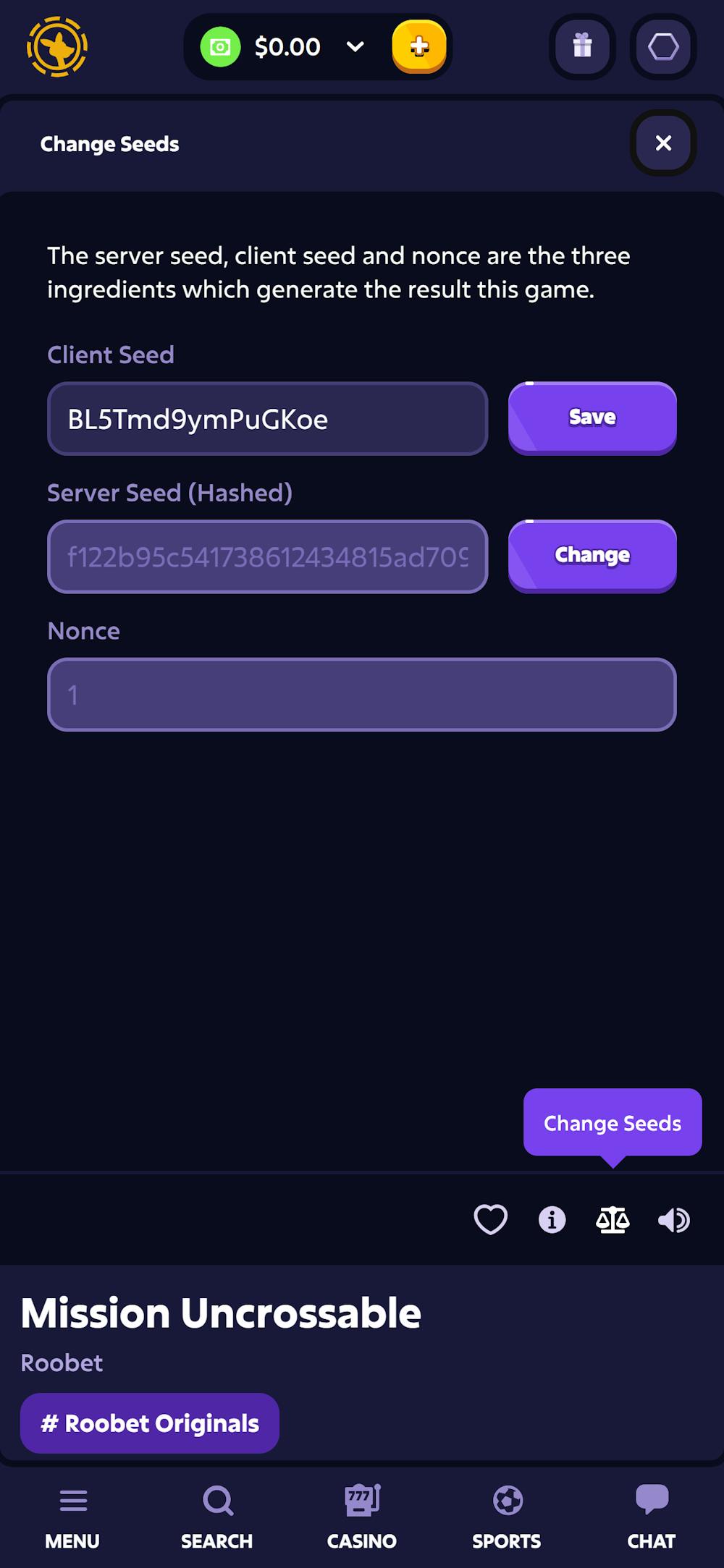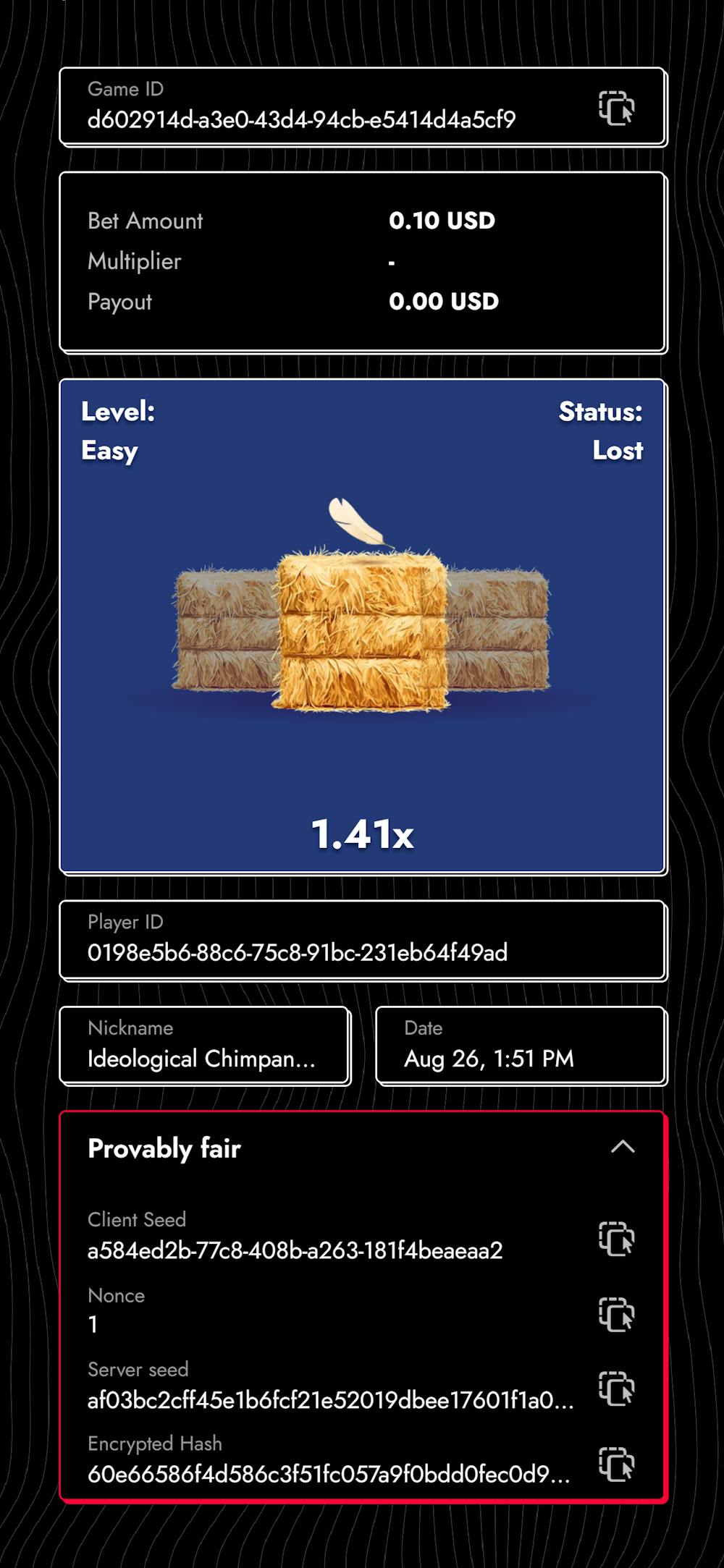Is Chicken Road Game Real or Fake? Learn How Legit Chicken Road Games Are (2026)

Overall, Chicken road games are real and offer a valid gambling experience with real money payouts. In this guide, we break down how they are legit. If you're new to chicken game gambling and are wondering how valid the games are, this is your guide to read on.
Is Chicken Road Game Legit?
Yes, chicken road games are legit. These games run on random number generators (RNGs), which ensure every outcome is completely unpredictable. What's particularly interesting is that certain variants like Chicken Road from InOut Games, Roobet's chicken game, and Stake Chicken offer even greater transparency through something called Provably Fair technology. The payouts work according to each game's Return To Player percentage, whilst the random number generator keeps everything above board.
Right then, let's dive into what these terms, RNG, Provably Fair, and RTP, actually mean and explore how they work together to make chicken road games a proper, trustworthy gambling option.
How RNGs Work in Chicken Road Games
The heart of any chicken road game is its RNG (Random Number Generator) software that churns out completely unpredictable numbers, which then get matched to specific game outcomes. When you're playing chicken road betting games and hit that "play" button, it's actually the RNG that instantly determines exactly where your chicken will end up crashing.
Every single run works completely independently from the last one. The odds are typically set up so that short runs succeed often, whilst those massive multipliers on farther spots are much rarer. So don't worry if you see winning streaks or dry runs, that's just normal mathematical variance, not the game being dodgy.
Here's something that might surprise you. All that running animation of your chicken you see? It's purely for show. The outcome was already decided the moment you clicked the Play.
Now, to keep everything legit, trustworthy casinos and chicken road game apps only use RNGs that have been properly tested and given the thumbs up by independent testing houses such as eCOGRA, GLI, or iTech Labs. Gaming authorities across different countries actually insist on this certification to guarantee that results are genuinely random and fair. It's not just the casinos, but the actual game developers themselves need to secure proper B2B licensing and pass regular audits to stay in business.
Provably Fair for Chicken Game Gambling
Provably fair is a mathematical system that lets you verify that online gambling games aren't rigged. Think of it like a receipt that proves your game results were genuinely random, not manipulated by the casino. This system is widely applied by game providers that develop chicken road games.
How It Works
Here's how it works in simple terms. Before you play, the casino or game creates a secret number (like a sealed envelope) and shows you a scrambled version of it. You then add your own random input. The game uses both numbers to determine the outcome. After the round, the casino/game reveals its secret number, and you can check the maths to prove they didn't cheat.
It's revolutionary because traditionally, you had to simply trust that casinos were honest. Now you can actually verify it yourself using mathematical proof. As the Crypto Gambling Foundation puts it: "Through the revolutionary concept of provably fair gaming, we want to change the way people perceive the online gambling industry".
How RTP & House Edge Work in Chicken Road Games
RTP (Return to Player) is the long‑term average percentage of all bets a game pays back to players. For example, if a chicken road game has a 96% RTP, it means that over time, players win back about $96 for every $100 bet.
House Edge is the opposite. It’s the casino’s built‑in profit percentage. If RTP is 96%, the house edge is 4%, meaning the casino keeps about $4 of every $100 wagered in the long run.
These figures are based on millions of plays and don’t predict what will happen in a single game.
Don't Fall For Gambler's Fallacy
Gambler’s Fallacy is the false belief that if something happens more (or less) than usual in the past, the opposite outcome is “due” next time, even when each round is independent (like a fair coin toss). It’s also called the Monte Carlo fallacy.
For instance, if a fair coin lands on heads five times in a row, many people think tails is more likely on the next flip. In reality, the next flip is still 50/50. The coin doesn’t “remember” previous flips. In a chicken road game, if the chicken has crossed safely several rounds in a row, you might think a crash is now more likely. It isn’t. Each new round is independent, and the odds stay the same. If you’ve had a run of crashes, you might think a safe round is “due”. It isn’t. The next round’s chance doesn’t improve because of past results.
If you're interested in learning more about Gambler's Fallacy, read these sources: Investopedia’s overview and Wikipedia’s article on the Gambler’s Fallacy.
Chicken Road Games Are Real - Explained
To sum up, chicken road games are real and not fake. The statement is supported by these facts:
Legit casinos use verified RNG chicken games.
Provably Fair allows you to check the results.
Games pay real money according to RTP.
When you combine RNG technology with RTP percentages, plus Provably Fair systems in certain chicken road games, you get a properly regulated gaming setup where fairness is actually guaranteed. Basically, you can trust that the outcomes are genuine and haven't been tampered with. However, to make sure the chicken road game you're playing is actually legitimate, you'll need to pick a gambling platform that holds a proper operating licence. The specific licence requirements will depend on where you're located. If you can't properly verify the licence that a gambling site says it has, it's probably worth giving it a miss.
Our Favourite Chicken Road Games


More Beginner's Guides

Yusaku works as an editor at OnlineChickenRoadGame.com and has been part of the online gambling scene since 2020. With his knack for spotting what makes a great chicken road game, he knows the difference between average and exceptional. Got a question about the chicken road game? He’s the one to ask.


